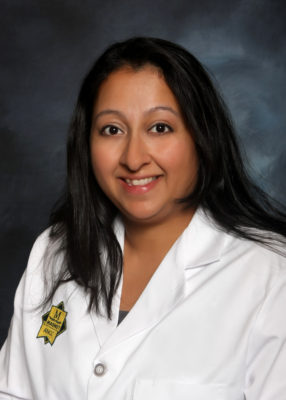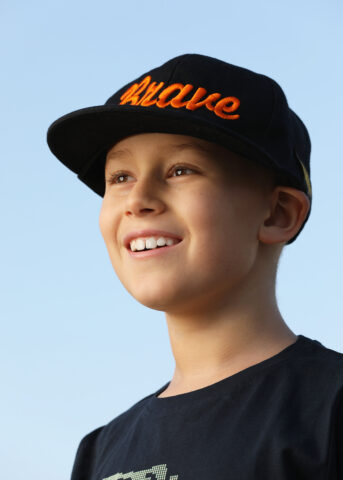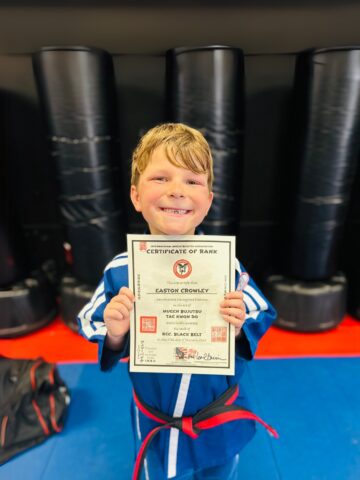CHOC wants its patients and families to get to know its specialists. Today, meet Dr. Anjalee Warrier Galion, a pediatric neurologist and sleep specialist.

Q: What is your education and training?
A: I attended the University of Medicine and Dentistry of New Jersey- New Jersey Medical School, and completed my residency in pediatrics at University of San Francisco, Fresno. During my academic year, I worked for Walter Reed Army Institute of Research to help identify a vaccine for malaria. My second day was September 11, 2011, and it was an amazing, humbling, and scary experience to be a part of the military for this day. My first fellowship was in pediatric neurology at the University of California, Irvine (UCI), and my second fellowship was in sleep medicine at the University of California Los Angeles- Cedars Sinai Sleep Medicine Fellowship.
Q: What are your administrative appointments?
A: Assistant clinical professor at UCI, assistant program director for the UCI child neurology residency program, chair of the junior faculty leadership council, and co-chair of the sleep workgroup for the National Autism Treatment Network.
Q: What are your special clinical interests?
A: Sleep disorders in children with neurologic diseases such as epilepsy and autism, as well as sleep and cognition.
Q: Are you involved in any current research?
A: Evaluation of efficacy of specific sedative hypnotics in children with Autism spectrum disorder, and Identification of sleep architecture and pathology in children with epilepsy.
Q: How long have you been on staff at CHOC?
A: Four years.
Q: What are some new programs or developments within your specialty?
A: CHOC is one of the few, if only, hospitals in the country doing combined long-term video EEG as well as polysomnography (sleep study). This allows us a very unique opportunity to look at the brain activity and pathology in sleep. Multidisciplinary sleep clinics involving psychology and pulmonology are also unique. Also, identification and treatment of a variety of pediatric sleep disorders including all types of insomnia, narcolepsy and parasomnias, such as sleepwalking, sleep talking and night terrors.
Q: What are your most common diagnoses?
A: Insomnia, narcolepsy, sleepwalking (or somnambulism).
Q: What would you most like patients and families to know about you or your division at CHOC?
A: We treat all types of sleep-related disorders and are providing state-of-the-art care for children with sleep disorders. It is estimated that more than 30 percent of children have sleep-related disorders, and improvement in sleep is essential for learning and cognition. Research suggests improved sleep supports optimal athletic performance as well. If there is any concern for a sleep-related disorder we are happy to help evaluate these children.
Q: What inspires you most about the care being delivered here at CHOC?
A: We treat every child with the highest level of care and the physicians genuinely care for the patients and our community.
Q: Why did you decide to become a doctor?
A: I had been interested in neuroscience since I was a Howard Hughes fellow at the University of Maryland, having done work in spinal cord regeneration. I heard a talk in my first year of medical school about pediatric neurology and haven’t looked back since.
Q: If you weren’t a physician, what would you be and why?
A: If I was not a physician I would mostly likely be a PhD working in the field of neurobiology and sleep medicine. Both my parents were PhDs and I grew up hearing about fascinating advances in the world of science, so I have been drawn to science and research from a young age. For quite a few years I was strongly considering becoming a professional flute player. I was fortunate enough to travel through Italy with my youth symphony and performed around the country in orchestras, but science drew me in by the time I was in college.
Q: What are your hobbies/interests outside of work?
A: I enjoy hosting parties and events for family and friends. Our family enjoys traveling and spending time together.
Q: What have you learned from your patients?
A: The best part about working with pediatric patients is that you are constantly reminded to enjoy life and be grateful for every day. The smallest things can make a child happy, like playing with a light-up toy or seeing bubbles, and it is a great reminder to take pleasure in all the simple things around us every day.





